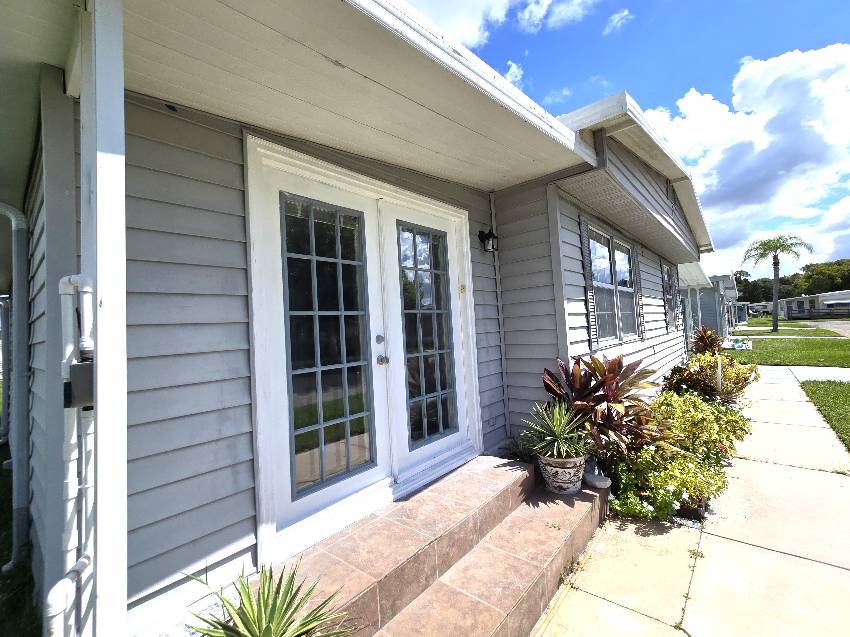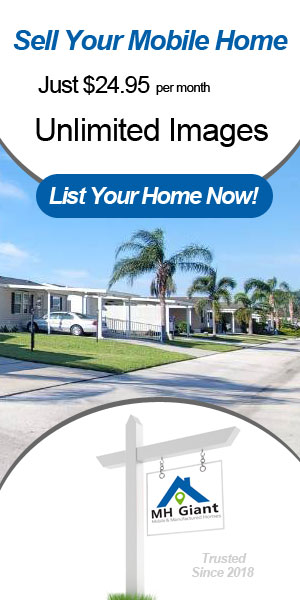What to Know Before Buying a Mobile Home
Purchasing a mobile home can be a life-changing decision, offering affordability, flexibility, and a sense of homeownership that many people seek. Whether you are a first-time buyer, looking to downsize, or simply prefer a mobile lifestyle, buying a mobile home can be a great investment. However, like any significant purchase, it’s essential to do your homework before signing on the dotted line.
In this guide, we’ll dive deep into the 10 things you need to know before buying a mobile home, ensuring you’re fully prepared to make an informed decision.
Table of Contents
1. Types of Mobile Homes: Single-Wide vs. Double-Wide
The first thing to consider when buying a mobile home is what size best suits your needs. There are two primary types:
- Single-wide mobile homes: These are typically more compact, measuring around 18 feet wide and 90 feet long. They offer a linear layout, making them ideal for individuals or couples. Single-wide homes tend to be more affordable and easier to transport, making them a popular choice for those who value mobility.
- Double-wide mobile homes: These are almost twice the size of single-wide homes, measuring up to 36 feet wide. Double-wide homes are more spacious, often providing multiple bedrooms, larger kitchens, and separate living and dining areas. While they come at a higher price point, they offer a more traditional house-like feel.
When deciding between the two, think about your lifestyle needs. Do you prioritize space or affordability? For instance, if you’re a retiree looking for a cozy space, a single-wide might suit you better. But if you’re a growing family, the added space of a double-wide could be worth the investment.
2. New vs. Used Mobile Homes: Weighing the Pros and Cons
Once you’ve determined the size that fits your lifestyle, the next question is whether to buy a new or used mobile home. Each option has its advantages and disadvantages:
- New mobile homes: The primary benefit of buying a new mobile home is that it will come equipped with the latest features, including energy-efficient appliances, modern design, and enhanced structural integrity. New homes are also built to meet the latest HUD (U.S. Department of Housing and Urban Development) safety standards, offering greater peace of mind. However, new homes can be more expensive, and like new cars, they often depreciate in value quickly once they leave the lot.
- Used mobile homes: If you’re looking for a more budget-friendly option, buying a used mobile home could be a great choice. However, older homes may require repairs or renovations, so it’s crucial to inspect them thoroughly before purchasing. Look for signs of wear and tear, particularly in areas like the roof, plumbing, and electrical systems. Don’t hesitate to hire a professional inspector to ensure the home is in good condition.
When choosing between new and used, consider your budget, the condition of the home, and your willingness to invest in repairs or upgrades.
3. Financing a Mobile Home: Options and Considerations
Financing a mobile home is different from traditional home financing, and this is an essential aspect to understand before making a purchase.
- Chattel loans: If you plan to buy a mobile home without purchasing the land it will sit on (e.g., if you plan to place it in a mobile home park), you’ll likely need a chattel loan. These loans are specifically designed for movable personal property, such as mobile homes. Chattel loans often have higher interest rates than traditional mortgages, but they are generally easier to qualify for and have shorter loan terms.
- FHA loans: If you’re purchasing both the home and the land, you may qualify for an FHA loan. These government-backed loans often come with lower interest rates and better terms than chattel loans but have more stringent qualifications.
When exploring financing options, shop around and compare different lenders. Keep an eye on interest rates, loan terms, and whether any additional fees or insurance will be required. It’s also important to understand that your credit score will play a significant role in determining the type of loan and interest rate you can get.
4. The Cost of Land: Renting vs. Buying
One of the unique aspects of mobile homeownership is that you have the option to either buy the land or rent a lot in a mobile home park. Each option comes with its own set of advantages and costs.
- Buying land: Owning the land your mobile home sits on gives you more control over your property. You won’t have to worry about rent increases or lease agreements. However, you’ll need to factor in additional costs such as property taxes, utility hookups (e.g., water, electricity, and sewage), and maintenance. Additionally, purchasing land comes with zoning and legal considerations—make sure that mobile homes are permitted in the area where you’re buying.
- Renting a lot in a mobile home park: Many mobile homeowners choose to rent a lot in a mobile home park. These parks often provide amenities like community pools, playgrounds, and security, which can enhance your living experience. However, you’ll pay monthly lot rent, which varies based on the location and amenities provided. Lot rent typically includes services like trash removal and general park maintenance, but it can also increase over time.
Choosing between renting and buying comes down to your budget and long-term goals. If you want more control and the potential for property appreciation, buying land might be the better option. But if you prefer convenience and community living, renting a lot could be ideal.
5. Zoning Laws, Permits, and Regulations
Zoning laws are another critical factor to consider when purchasing a mobile home. Not all areas are zoned for mobile homes, and restrictions can vary widely depending on the location. Before you buy, check with your local zoning office to ensure that mobile homes are allowed where you intend to live.
Beyond zoning laws, you’ll also need to be aware of other regulations, such as:
- Building codes: Some areas have specific building codes for mobile homes, particularly regarding foundation requirements and utility hookups.
- Permits: In many places, you’ll need to obtain permits for installing a mobile home. This could include permits for plumbing, electricity, and even the home’s transportation and setup.
- Deed restrictions: If you’re placing your mobile home on private land, check for any deed restrictions that might limit the types of homes allowed.
Understanding these regulations ahead of time will save you time, money, and potential legal headaches.
6. Mobile Home Park Living: What You Should Know
Living in a mobile home park is a popular choice for many mobile homeowners. Parks offer a sense of community and often provide shared amenities such as clubhouses, pools, and fitness centers. However, it’s essential to thoroughly research the park you plan to move into.
Here are some things to consider:
- Park rules and regulations: Every mobile home park has its own set of rules regarding things like pets, landscaping, and noise levels. Make sure to review these rules carefully to ensure they align with your lifestyle.
- Lot rent and fees: Monthly lot rent varies from park to park. Additionally, some parks charge extra fees for certain amenities or services, so make sure you understand all costs involved.
- Park reputation: It’s worth talking to current residents to get a feel for the park’s management and overall atmosphere. Look for reviews or complaints online to ensure the park is well-maintained and has a good community culture.
By doing your due diligence, you can find a park that fits your lifestyle and budget.
7. Resale Value of Mobile Homes: What to Expect
One of the most significant differences between mobile homes and traditional homes is how they appreciate or depreciate in value. Unlike stick-built homes, mobile homes typically depreciate in value over time, particularly if they are located in a mobile home park. However, there are ways to boost your mobile home’s resale value, including:
- Proper maintenance: A well-maintained mobile home is more likely to retain its value. Regularly inspect and repair your roof, skirting, plumbing, and other key areas.
- Upgrades: Consider adding modern upgrades, such as energy-efficient windows, new appliances, or enhanced insulation. These improvements not only make your home more comfortable but can also make it more attractive to potential buyers.
- Land ownership: Mobile homes located on owned land generally retain value better than those in parks. If you plan to sell in the future, owning the land could make your home more appealing.
While mobile homes may not appreciate like traditional houses, careful maintenance and thoughtful upgrades can make a difference when it comes time to sell.
8. Mobile Home Insurance: Protecting Your Investment
Just like a traditional home, mobile homes require insurance to protect your investment. Mobile home insurance typically covers:
- The structure: This includes protection against damage from fire, storms, vandalism, and other hazards.
- Personal belongings: Your insurance policy can also cover your personal property inside the home, such as furniture, electronics, and clothing.
- Liability: This covers you if someone gets injured on your property.
It’s important to note that not all areas qualify for standard mobile home insurance. If you live in a region prone to natural disasters like floods or hurricanes, you may need additional coverage.
Be sure to shop around for mobile home insurance policies to find the one that offers the best protection for your home at a reasonable price.
9. Maintenance Costs: What to Expect Over Time

Owning a mobile home can be a cost-effective option, but it’s essential to budget for ongoing maintenance. While mobile homes tend to have lower maintenance costs than traditional homes, certain repairs are common:
- Roof repairs: Mobile home roofs, particularly flat ones, are prone to leaks. Regular inspections and timely repairs are essential to prevent water damage.
- Plumbing issues: Plumbing systems in mobile homes are often made from materials that can wear out over time. Keep an eye on pipes and drains to catch problems early.
- Skirting repairs: The skirting around the base of a mobile home protects the home’s foundation and provides insulation. Damaged skirting can lead to drafts and increased energy costs, so be sure to repair any cracks or holes.
In addition to these regular maintenance tasks, older mobile homes may require upgrades to improve energy efficiency or meet updated safety standards.
10. Energy Efficiency: Reducing Long-Term Costs
Modern mobile homes are often built with energy efficiency in mind, which can save you money on utilities in the long run. However, older mobile homes may not be as efficient, leading to higher heating and cooling costs.
Here are some ways to improve the energy efficiency of your mobile home:
- Insulation: Adding or upgrading insulation in the walls, roof, and floors can make a big difference in reducing energy costs.
- Energy-efficient windows: Replacing older windows with double-pane or energy-efficient windows can help keep your home warm in the winter and cool in the summer.
- Energy Star appliances: Modern mobile homes often come with energy-efficient appliances, but if you’re buying an older home, consider upgrading to Energy Star-rated appliances to save on electricity and water bills.
By making energy-efficient upgrades, you can not only lower your monthly utility bills but also improve the comfort and resale value of your home.
FAQ
1. Can I move a mobile home after purchase?
Yes, mobile homes are designed to be movable, but moving a mobile home can be expensive and requires professional assistance. The cost of moving a mobile home can range from $1,000 to $5,000, depending on the distance and size of the home. Always check local regulations and park rules before relocating your home.
2. How long do mobile homes last?
With proper care and maintenance, a well-built mobile home can last between 30 to 50 years or more. Mobile homes built after 1976 (under HUD regulations) tend to last longer due to stricter safety standards. Regular maintenance, including roof repairs and plumbing inspections, is essential to extending the life of your mobile home.
3. Can I build on or expand my mobile home?
Yes, you can expand a mobile home, but it’s important to check local building codes and regulations before making any additions. Common expansions include adding decks, porches, or even extra rooms. Be sure to consult with a professional to ensure the foundation and structure can handle the addition.
4. Are mobile homes a good investment?
Mobile homes are a more affordable alternative to traditional homes, but they typically don’t appreciate in value the same way. If you’re looking for long-term investment potential, owning the land along with the mobile home offers the best chance for appreciation. However, mobile homes are still a great option for affordable living.
5. What’s the difference between a manufactured home and a mobile home?
The terms are often used interchangeably, but technically, mobile homes refer to homes built before 1976. After 1976, when HUD regulations were introduced, they became known as manufactured homes. Both types are built in a factory and transported to a home site.
Final Thoughts
Buying a mobile home can offer a path to affordable, flexible living, but it’s important to do your homework before making a purchase. From understanding financing options to navigating local zoning laws, each step plays a crucial role in finding the perfect home for you. Whether you’re looking for a budget-friendly option or a long-term investment, being informed will help you make the best decision for your lifestyle.

 Understanding these regulations ahead of time will save you time, money, and potential legal headaches.
Understanding these regulations ahead of time will save you time, money, and potential legal headaches.